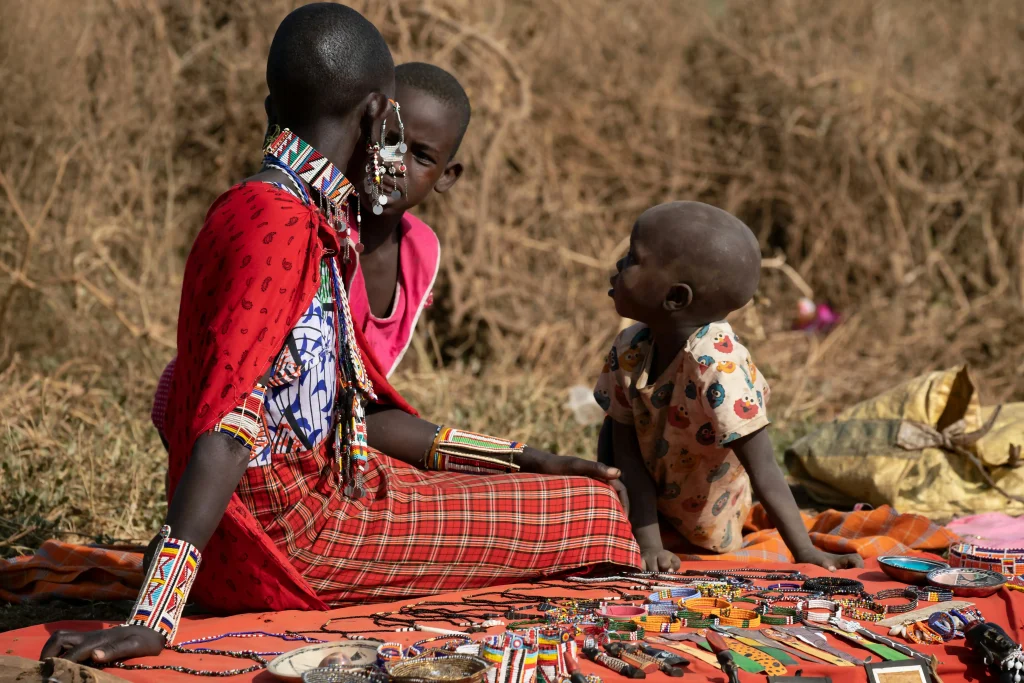A bill is under consideration in The Gambia that could reverse a ban on female circumcision passed in 2015. According to Human Rights Watch, the new legislation threatens the rights of women and girls in the country. Female circumcision, or genital mutilation, has until now been illegal in The Gambia, and the ban enacted in 2015 was an important step in the fight for women’s rights. Now, however, if the bill is passed, it could allow the return of this brutal practice, which has serious health and mental health consequences for women.
Table of Contents:
- Gambia bill threatens ban on female circumcision
- What is female circumcision and what effects does it have?
- Female circumcision in The Gambia: What are the health and social risks?
Gambia bill threatens ban on female circumcision
The Gambia is currently debating a bill that could reverse a ban on female circumcision passed in 2015. If the bill gains support in parliament, the country will become the first to decide to reverse the ban on this brutal practice. In 2015, The Gambia succeeded in making an important change – female circumcision became a crime. In addition, the government has adopted a plan that aims to eliminate the habit completely by 2030.
The Gambia is one of the countries with one of the highest rates of female circumcision in the world. Circumcision, the removal or damage to the genitals of girls and women, has serious health and emotional consequences. The 2015 ban on the practice was a landmark step in protecting women’s rights. However, if the bill, known as Women’s (Amendment) Bill 2024, is passed, it could mark a return to the past.

Mausi Segun, Human Rights Watch’s Africa director, expressed deep concern about the bill. According to her, passing a bill that would legalize circumcision not only threatens the rights of women and girls in The Gambia, but could also inspire other countries to take similar action, which would be a huge step backward in the fight for women’s rights across the continent.
What is female circumcision and what effects does it have?
Female circumcision is a term that refers to any procedure that involves the partial or complete removal of the external female genitalia or damage to it, performed for reasons other than medical. According to UNICEF, this practice has serious health, mental and emotional consequences that last a lifetime. Female circumcision is also a serious public health problem, as it can lead to complications during childbirth, including maternal and child death.
Performing female circumcision violates many basic rights of women and girls, such as the right to health, safety and physical integrity, the right to live free from torture, cruel or degrading treatment, and the right to sexual and reproductive health.

According to a UN report, more than 230 million women and girls around the world have survived circumcision, living with its lingering effects. UNICEF reported that in The Gambia, some 73% of women and girls between the ages of 15 and 49 have undergone circumcision. Moreover, more than 80% of girls between the ages of 10 and 19 had been circumcised before they turned 5. Most of them were subjected to infibulation, which means their genitals were not only cut but also stitched, causing serious health problems.
Female circumcision in The Gambia: What are the health and social risks?
Most cases of female circumcision in The Gambia are performed by traditional practitioners, often women, leading to deaths in some cases and causing long-term health problems in many others. Even if the procedure is performed by health professionals, this does not change the fact that circumcision is never safe. Both girls and women face a high risk of health complications, which can occur immediately after the procedure or later in life.
According to the World Health Organization (WHO), there is no medical justification for the practice. Circumcision causes serious health consequences, both physical and mental, as well as emotional. Additionally, it can lead to difficulties in childbirth and even death of the mother or child.

Many people in The Gambia justify the practice by invoking religion or tradition. However, in Islam, neither in Sharia law nor in the prophetic traditions (Sunna) is there any command to perform female circumcision, nor is it considered an honorable act. On the contrary, it is opposed by the hadis (a statement by the Prophet Muhammad), which states: “Do not harm yourself or others.” The common belief that circumcision is the removal of “excess skin” does not apply, because the outer part of a woman‘s genitals, does not contain any unnecessary or harmful part.
Female circumcision is covered by numerous international conventions and regional agreements, and is prohibited by national laws in many countries. The international community, including UN member states, have pledged to eliminate all harmful practices, including female circumcision, by 2030, as part of the Sustainable Development Goals, which address gender equality. If The Gambia decides to lift the ban on circumcision, it could exacerbate existing problems and threaten the health and lives of women and girls in the country.





